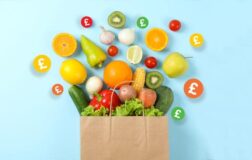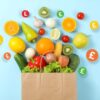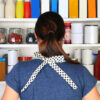Best before dates: Which foods are safe to eat?
Has the best-before date on your carton of eggs come and gone? How about the dusty jar of honey at the back of your cupboard? Before you bin them, read this.
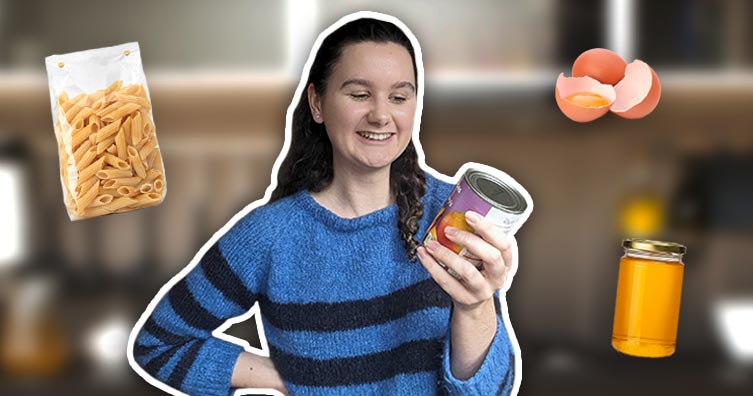
Credit: REDPIXEL.PL (background), Gulyash (pasta), Ivaylo Ivanov (honey), Nattika (eggs) – Shutterstock
The UK wastes millions of tonnes of food every year. It's hard to comprehend so much waste.
But some food is thrown away while still safe to eat, often due to best-before dates getting confused with use-by dates, which are very different.
Knowing that key difference will introduce you to one of our favourite money-saving tips: buying reduced food that's near or past its best-before date. You can find some real bargains on sites like Approved Food and Discount Dragon.
We'll cover what the dates on food wrappers really mean, along with loads of examples of foods you can eat after their best-before dates.
What does 'best before' mean?
Best-before dates indicate when something is likely to reduce in quality. But, crucially, it doesn't usually mean food becomes unsafe to eat at that point.
For example, if you have a bar of chocolate that's past its best, it will probably still be edible. The taste might have dulled, but that's not necessarily a reason to throw it away.
Use common sense and check the food's look, smell and texture if you're unsure.
The difference between 'use by' and 'best before' dates
Best-before and use-by dates do not mean the same thing. This is the important difference:
- Best-before dates refer to the quality of food. Something that's no longer at its best quality can still be safe to eat.
- Use-by dates refer to food safety and shouldn't be ignored. If something's use-by date has passed, don't eat it as you could become unwell.
So in the next section, when we talk about foods that are safe to eat past their best, we're referring to ones with best-before dates – not use-by dates.
Visit the Food Standards Agency's website for more info on when food is and isn't safe to eat.
14 foods you can eat after their best before date
These food items are safe to eat after their best-before dates:
-
Eggs
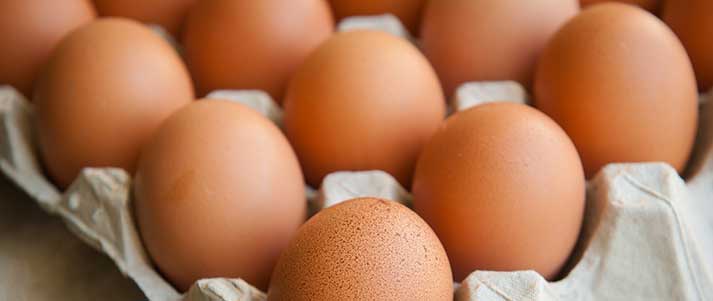
Credit: siambizkit– Shutterstock
Eggs can be eaten after their best-before date, but how long they last will depend on their storage.
It's generally better to store eggs in the fridge rather than the cupboard, and keep them in their carton to avoid bacteria from other foods getting through the shells. When eggs are stored like this, they can potentially be safe to eat a couple of weeks after their best-before date when cooked.
If you're unsure whether some eggs are still fresh, try the float test. This is where you put an egg in a bowl of cold water to see if it floats or sinks. Eggs that sink to the bottom of the bowl and lie flat on their sides are usually fresh.
You can't freeze eggs that are still in their shells. However, you can beat them together while they're still fresh and then freeze them. This way, they'll be safe to eat for up to six months. Make a note of the use-by date on the container before freezing the beaten eggs.
Before buying eggs in the supermarket, always open the carton first to check if any are damaged! -
Honey
Jars of honey can last for years. But they sometimes get chucked away earlier than necessary due to people mistakenly thinking they've gone off when they start to crystallise.
It's completely normal for honey to crystallise after a few months and shouldn't stop it from being edible. In fact, it's super easy to get it back to its smooth, liquid consistency.
Here's what Poppy Needham, Pricing Pro at Approved Food, suggests doing when honey crystallises:
This is something I get asked about a lot – just because your liquid honey has crystallised, it doesn't mean it's gone bad, so try to refrain from throwing it away!
In its natural form, honey has very low moisture levels, meaning that most bacteria doesn't actually survive.
If you are concerned about your honey crystallising, then all you need to reverse this process is a small bowl filled with warm water, and a teaspoon.
Simply place your jar of honey into the bowl, then add warm water until it's about three-quarters up the side of the jar.
Using the teaspoon, stir the honey slowly and continuously, taking care not to splash water into the jar. Then, simply leave the honey to rest for up to thirty minutes, and the crystals will dissolve.
-
Pasta
Dried pasta is a student staple for many reasons – namely, that it's cheap, filling and lasts for ages.
To clarify, we're not talking about the fresh pasta you buy from the refrigerated section of supermarkets. That doesn't last as long and is usually more expensive. You'll find dried pasta in the non-refrigerated aisles.
Even if dried pasta loses some of its quality after its best-before date, it should still be safe to eat for one or two more years. Once you've cooked it and added in some rich flavours like tinned tomatoes and seasoning, you'll have a tasty (and cheap) pasta dish.
As it lasts so long, dried pasta is an ideal food to buy in bulk and keep stocked up. This should work out cheaper and help you save money on groceries.
As an example, at the time of writing, a 500g bag of penne pasta costs £0.69 (£1.38/kg) at Tesco. However, a 1kg bag costs £1.29 – that's a saving of around 7% compared to buying two 500g bags.
-
Bread
The key to knowing if bread is safe to eat is to think less about the best-before date on its wrapper, and more about its appearance, texture and smell.
If bread gets mouldy, throw it away – this is not safe to eat.
But if a loaf is past its best-before date and still looks, smells and tastes okay, it should be fine to eat.
How long a loaf lasts will largely depend on how it's stored.
You can keep bread in a cool, dry place like a cupboard for up to a couple of weeks.
Stale bread can be eaten, but it's admittedly not the nicest in a sandwich. Here are some ideas for other ways to use up stale bread:
- Toast it – you usually can't taste the staleness as much when the bread's toasted.
- Make bread and butter pudding.
- Create breadcrumbs.
- Make bread sauce.
If you find that bread tends to go off in your cupboard before you finish a full loaf, freeze it while it's fresh. This should keep the bread edible for up to six months. You'll just need to defrost the bread before eating.
Check if there's a defrost button on your toaster as this will let you toast the bread from frozen.
-
Noodles
When buying instant noodles (for example Pot Noodle and Super Noodles), you'll often find there's a long period until their best-before date.
When you reach that date, however, don't throw them away immediately. They could still be okay to eat for another few months.
If you're unsure, check the smell, texture and taste before eating the full noodle pot.
-
Canned food
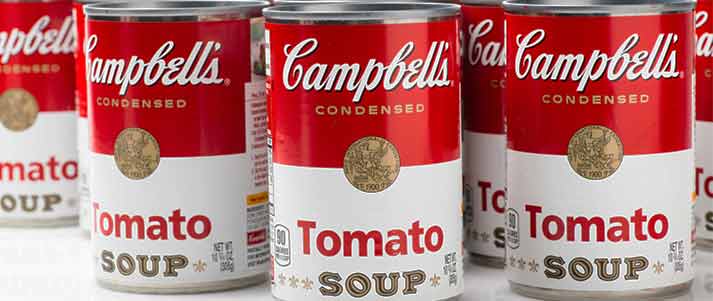
Credit: calimedia – Shutterstock
As a general rule, canned foods will last for years. However, depending on the level of acidity of the food, some will lose their quality more quickly than others.
For example, low-acid tinned foods like peas and beans can last for up to five years.
In comparison, high-acid tinned foods like pickles, tomatoes and fruits might only last up to 18 months.
Before eating food from tins (especially if it's after the best-before date), check the can to make sure there are no signs of damage. If there's any rust, swelling or big dents, this could result in the food being unsafe to eat.
-
Rice
Another kitchen cupboard essential: rice.
When uncooked, white rice can potentially last indefinitely, making it a great food to keep stocked up at home.
Brown rice, though, has an outer layer that can go off. As such, it tends to have a shorter shelf life of between six months and a year.
Next time you're in the supermarket, look for 5kg or 10kg bags of rice as these will work out as much cheaper per gram than the 500g bag equivalents.
At the time of writing, you can get a 10kg bag of Tilda Pure Basmati rice for £31 (£3.10/kg) from Tesco.
A 500g bag of the same type of rice, however, costs £2.90 (£5.80/kg). This means you'll be spending nearly twice as much to get 20 of the 500g bags compared to if you bought just one 10kg bag.
As white rice lasts so long, this is an excellent way to save money on food.
-
Crisps
You can often buy bags of crisps that are nearing their best-before date for discounted prices.
They won't always last a huge amount of time (potentially just a few weeks after their best-before date) so it's worth not waiting too long to eat them.
It might be that they're slightly softer than usual but still taste fine, in which case they should be okay to eat. However, if they taste stale, this is a sign they have gone off.
-
Sauces
Unopened bottles of sauces are usually safe to eat for a while longer after their best-before date, as long as they've been kept in the fridge.
Poppy from Approved Food has given some useful guidelines on how to know if condiments are safe to eat:
If stored correctly in the fridge, bottled sauces such as mayonnaise [or] ketchup can be consumed after the 'best before'. However, this can vary depending on whether the bottle has been opened or not.
If in doubt, then double check whether or not it has started to darken in colour or separate, as these are usually the tell-tale signs that the product can no longer be consumed.
Vinegar can be consumed as long as five–10 years after the date printed on the bottle, however its taste might be a little less potent after a long period of time due to a decrease in acidity levels.
-
Chocolate
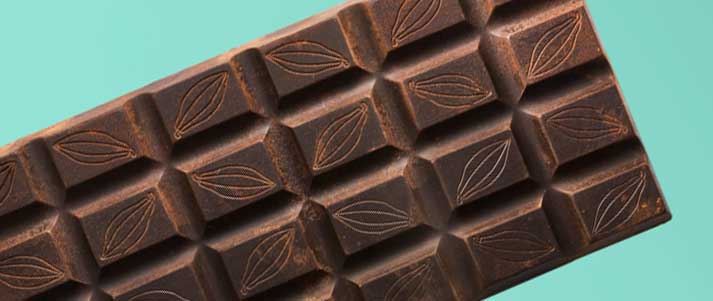
Credit: Agave Studio – Shutterstock
Do you ever find yourself completely forgetting about a bar of chocolate, only to rediscover it months later after its best-before date has passed? No, us neither.
But on the off chance that chocolate does last long enough to get past its best, it might not taste quite as good, but it generally remains safe to eat.
We say 'generally' as chocolates with fresh ingredients like cream will go off.
Plain chocolate, however, doesn't have an expiration date. This is because it doesn't include water, so bacteria aren't able to grow.
So if – hypothetically speaking – you did forget about a chocolate bar for a while, it should still be edible.
-
Cereal
This tip comes courtesy of Poppy at Approved Food:
Dry breakfast cereals will stay fresh after their best-before date, however it's best to exercise caution when it comes to cooked cereals like oatmeal, as this will only last four to five days in the fridge after it has been made.
With this in mind, if you have a box of dry cereal that's past its best, it might lose some of its flavour and crunch, but that's not a reason to throw it away.
Just make sure there's no mould on the cereal. This can potentially happen if any moisture gets into the packet, so keep the box in a cool, dry place like a cupboard.
-
Herbs and spices
Dried herbs and spices can last for years.
It's unlikely that you'll get ill if you use them after their best-before date, but they might start to lose some of their taste and quality.
Ideally, you don't want to leave it too long to use them up. After all, if you're adding them to your cooking, you want them to enhance rather than detract from the flavour.
But we'd just say: don't worry too much about the best-before dates on the packaging. Even if the dates have passed, think more about how they smell and taste. If you're still happy with the quality of your herbs and spices, it should be fine to keep cooking with them.
-
Tea and coffee
Things like tea bags, coffee pods and jars of instant coffee should last a very long time if stored correctly.
The best-before dates for products like these are often set pretty far ahead, so you'll likely finish them before it gets to that point.
While writing this guide, we checked the best-before date on a box of herbal tea bags in our cupboard. We'd already got through 19 of the 20 bags in the box, and still had 21 months until the best-before date. Even after that date (if there were any left by then), we'd still expect them to be safe to drink.
When stocking up, see if you can find any good deals on big packs of tea or coffee.
-
Alcoholic drinks
Do you have a bottle of beer in the back of your fridge? Even if it's after the best-before date, you might still be able to drink it, as Poppy from Approved Food explains:
Beer and wine are student cupboard staples and are also perfectly safe to consume for a lot longer than most people think.
Beers such as lagers, IPAs and pale ales last well after the 'best before' date. Just make sure to keep it in the fridge and always conduct a quick 'sniff test' if you have your doubts.
Neat alcohol, such as vodka, lasts indefinitely, so the main points to consider and check is how the alcohol has been produced and what else is in the drink that could affect the taste and quality of the product over time.
The same can be said for non-alcoholic alternatives. You'll need to have stored them correctly and, if the best-before date has passed, check the smell and appearance of each drink before trying it.
Discover loads of great ways to get free food.

